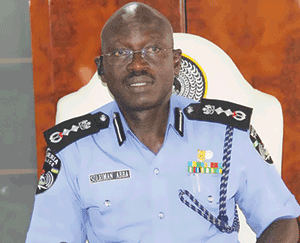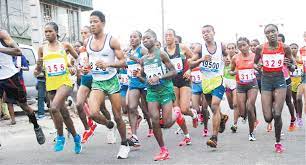“Extra-judicial killing in the police remains a shocking common occurrence,” Eric Guttschuss, Human Rights Watch (HRW) researcher for Nigeria, was quoted in a BBC report in May 2009.
This assessment came four years after the June 7 and 8, 2005 cold-blooded murder of five young male traders and a female student (the ‘Apo 6’) by the police in Abuja.
The prime suspect in that senseless multiple first degree murder, Ibrahim Danjuma (DCP), angered by the effrontery of Augusta Arebu (the only girl among the six) in refusing his love advances, waylaid the six at a police checkpoint on their way back from a night party. He unconscionably tagged them armed robbers and ordered policemen at the checkpoint to shoot them. This happened shortly before the arrival in Nigeria of the United Nations Special Rapporteur on extrajudicial executions in that year.
Eight years after this most infamous case of extra-judicial killing in Nigeria’s history, the criminal trial of the identified killer-police officers has gone nowhere. Families of the victims appear to have given up hope for justice – especially after the prime suspect was granted bail in 2006 by the trial judge, Justice Isyaku Bello, on dubious health grounds. Othman Abdulsalam, the then DPO of Garki police station – where they were killed – also ‘escaped’ from police custody and has remained at large till date.
The Special Rapporteur on extrajudicial executions, in his report, said: “If the Apo 6 were an isolated incident, it would be a tragedy and a case of a few bad apples within the police force. Unfortunately, many of the ingredients – the false labelling of people as armed robbers, the shooting, the fraudulent placement of weapons, the attempted extortion of the victims’ families, the contempt for post-mortem procedures, the falsified death certificates, and the flight of an accused senior police officer – are all too familiar occurrences.”
In 2009, Amnesty International (AI) reported that hundreds each year are killed by Nigeria’s police force, or disappear while in custody. “Few police officers are held accountable. In most cases, there is no investigation into the deaths in custody, extrajudicial executions or enforced disappearances…”
But what are some of the factors that predispose the police to brutality and violence? The following factors have been identified:
– The colonial history of Nigeria Police: ‘A repressive colonial police heritage’
– A legal framework on policing that promotes – rather than deter – abuse (Police Force Order 237 which provides the police with ‘a carte blanche’ to ‘kill at will’).
– Infrastructural problems: A poorly funded and ill-equipped police force. Suspects are tortured for confessions because police lack the ability and means to conduct thorough criminal investigations. They lack the equipment including forensic tools; there are no ballisticians, pathologists often write reports without carrying out any examination; majority of convictions are secured through confession in contravention of Section 28 of the Evidence Act. When there are allegations that evidence has been procured through torture, the courts at best hold ‘trial within trial’, and when satisfied that the allegation is true, they declare the confession illegal and inadmissible, but do not go further to make any consequential order that the perpetrator should be prosecuted.
– Structurally, authoritarian rule by successive military regimes were sustained by violence inflicted by the state using state apparatuses such as the police, armed forces, secret police etc.
– A highly-centralised police structure plagued by political interference.
– A compromised recruitment process and poor police training, leading to the hiring of unsuitable and sometimes, mentally unstable personnel.
– Salaries are too bad, making police prone to corruption and other crimes, including violence.
– Police officers are killed in their hundreds or even thousands every year, which may in fact explain their attitude to the public.
– Police complain of poor working conditions, unhealthy environments, long hours and inadequate housing – all demotivating factors.
– Weak internal control external oversight mechanisms.
Police hierarchy acknowledges the problems.
Eight years after the ‘Apo 6’ killing, not a great deal has changed. In January 2013, Mohammed Abubakar, then acting Inspector General of Police (IGP), admitted publicly that the “police are corrupt and commit extra-judicial killings”. He lamented that the image of the force has degenerated to the lowest levels, as policemen are mired in a cesspool of corruption and their stations and checkpoints have turned into “bribery collection points”.
He singled out the police Special Anti-Robbery Squad (SARS) as having become killer teams recklessly engaging in extrajudicial killing. “Our police stations, state CID and Ops offices have become business centres and collection points for rendering returns from all kinds of squads and teams set up for the benefit of superior officers. Our Special Anti-Robbery Squads have become killer teams engaging in deals for land speculators and debts collection…”
He warned officers that “There is no place in the Nigeria Police Force for any dishonest and undisciplined policeman anymore, and this administration will get rid of all misfits and undesirable members of the police force in the country, irrespective of their ranks. Corruption and corollary lawlessness by police officers will no longer be tolerated but effectively dealt with. It shall no more be business-as-usual.”
• Nwanguma is National Coordinator, Network on Police Reform in Nigeria (NOPRIN).
















